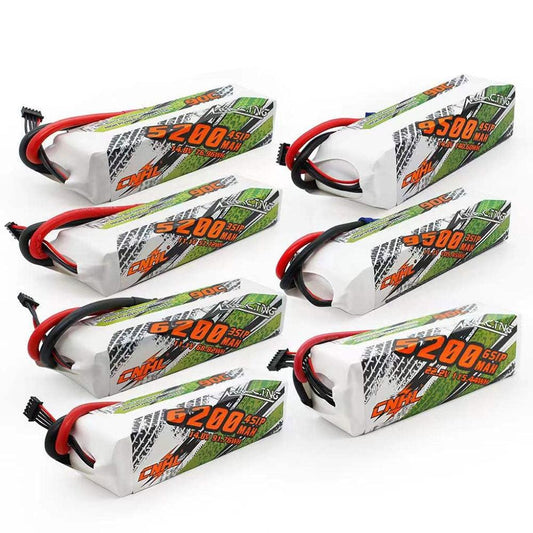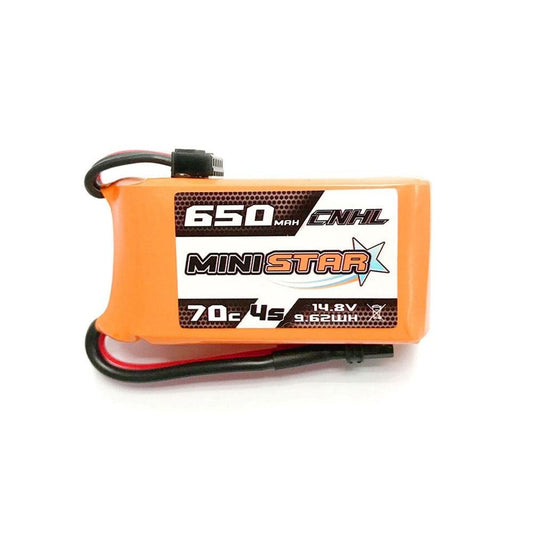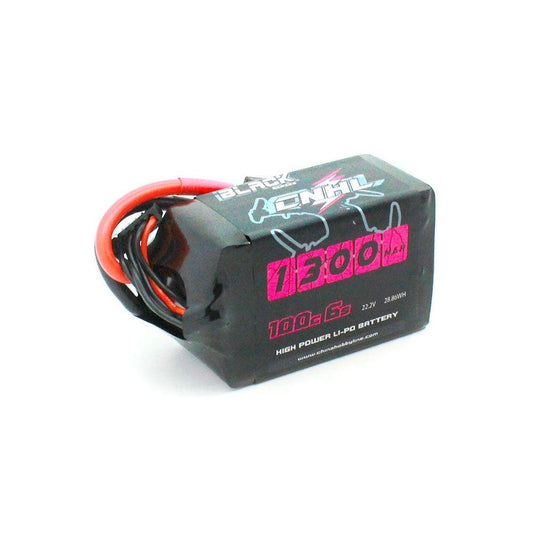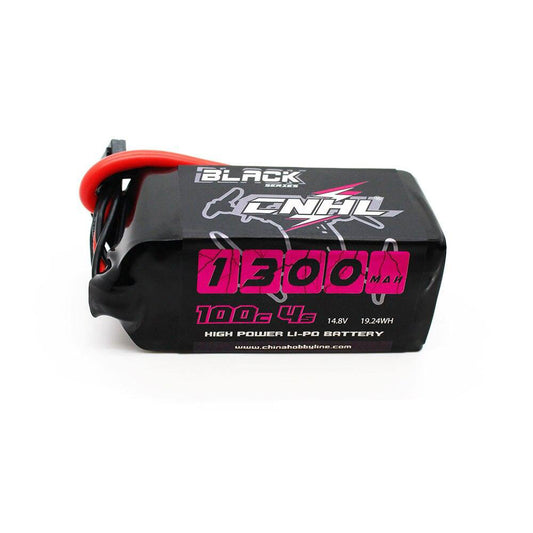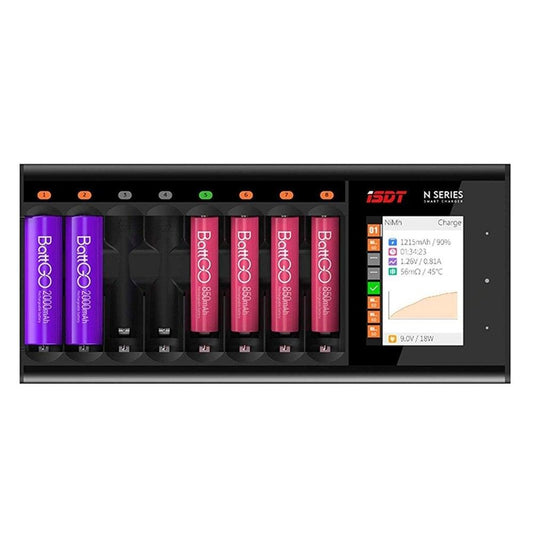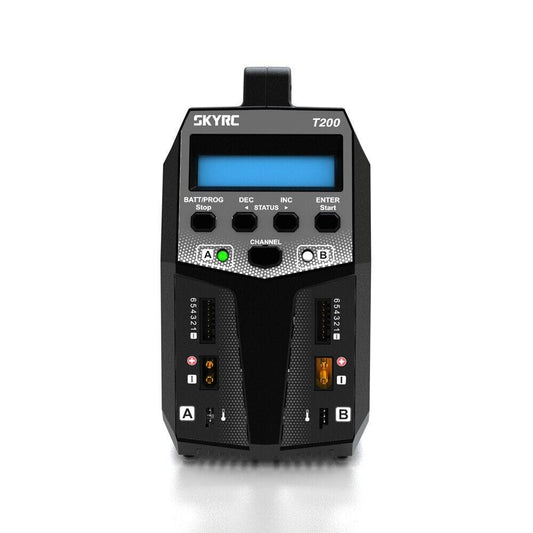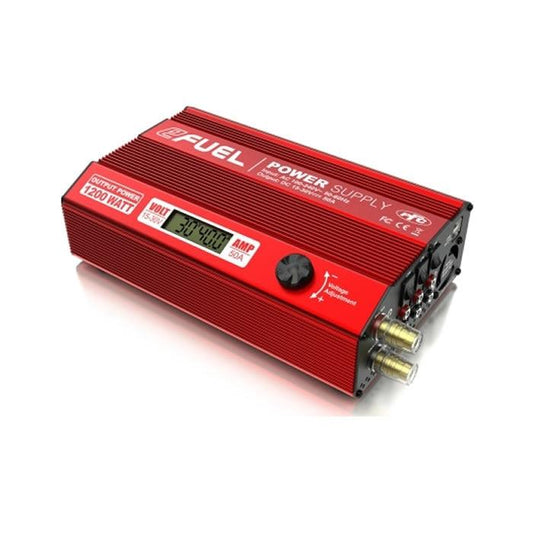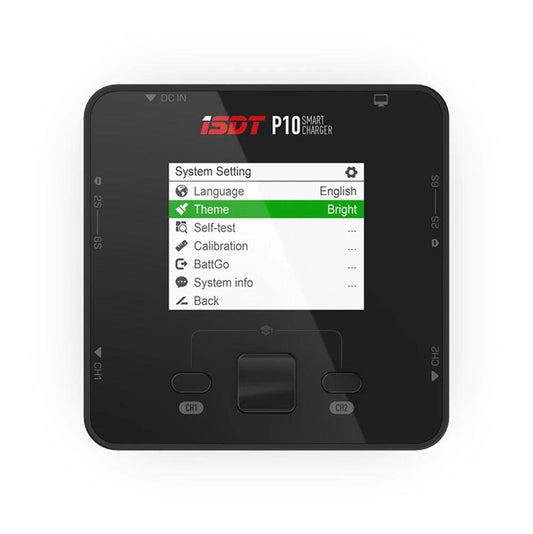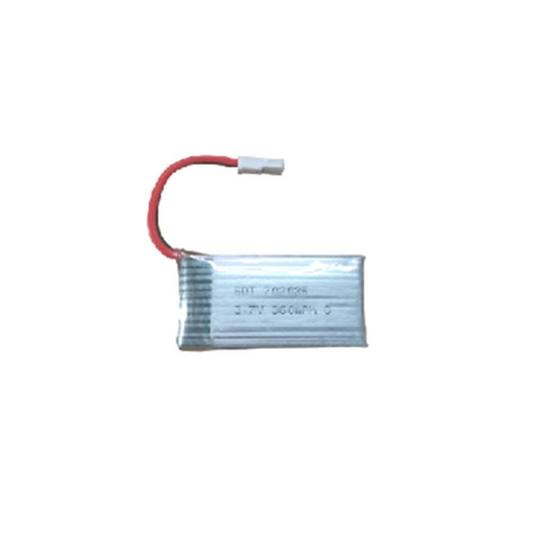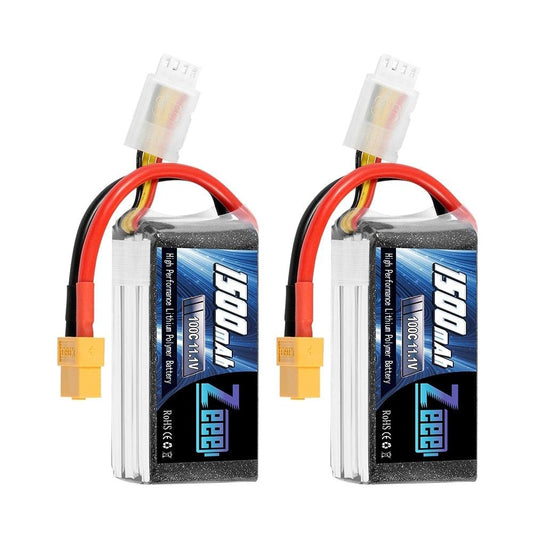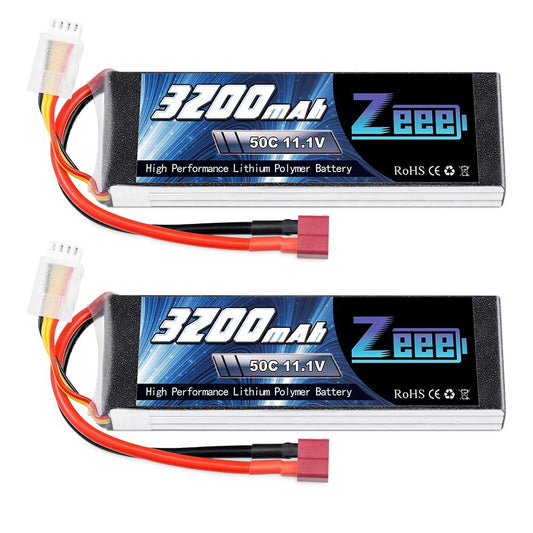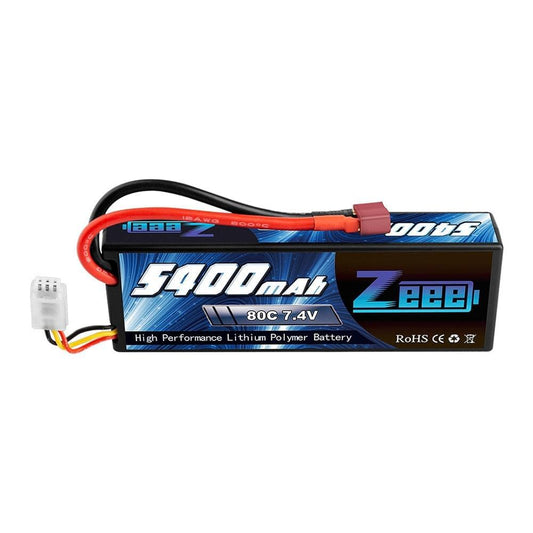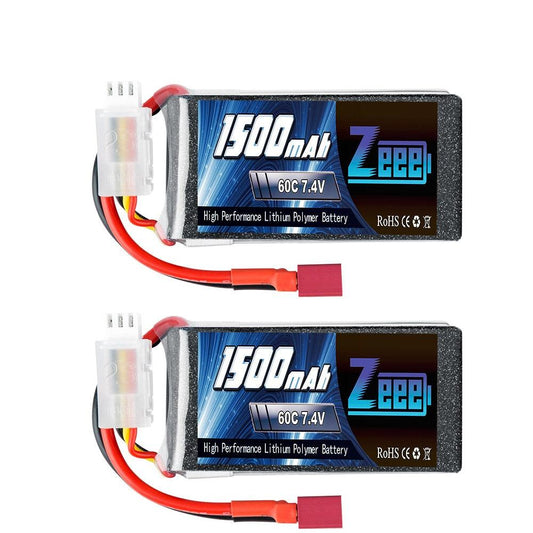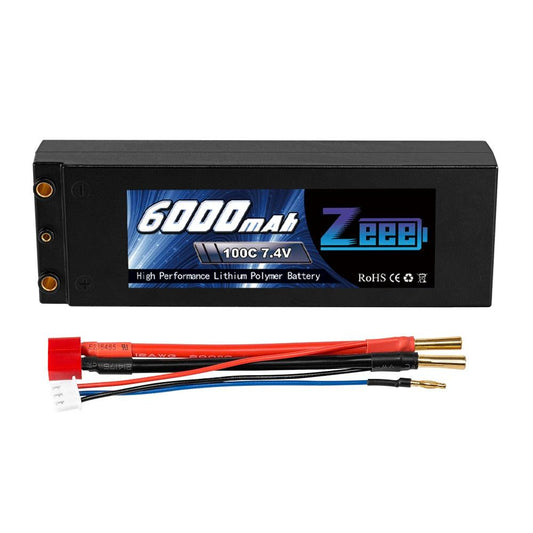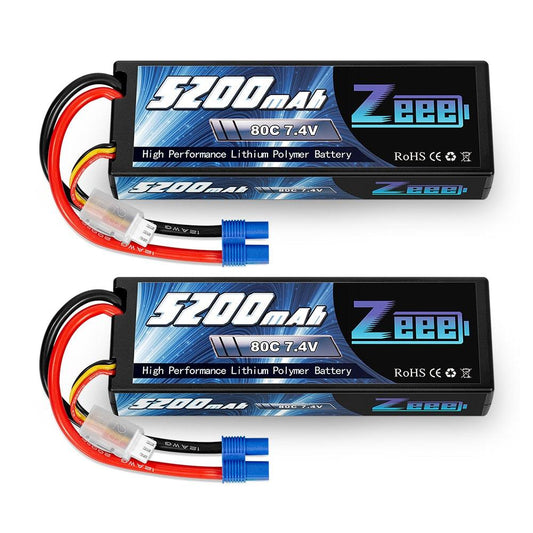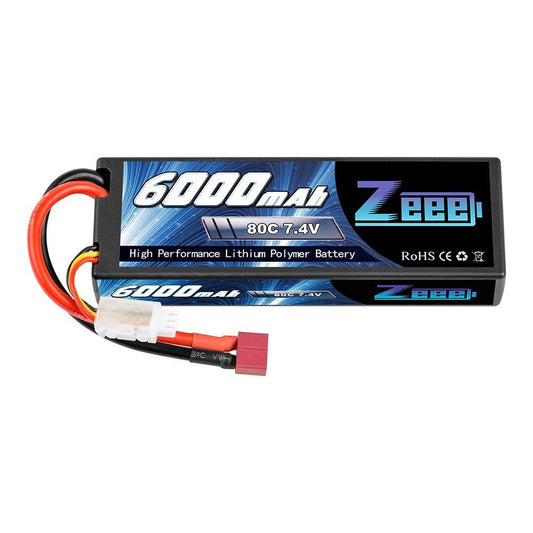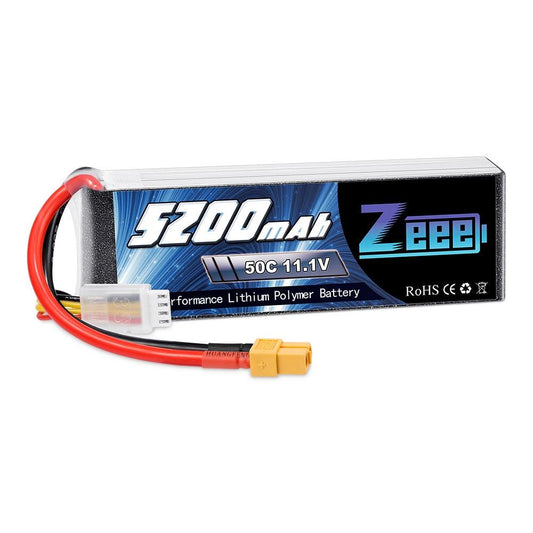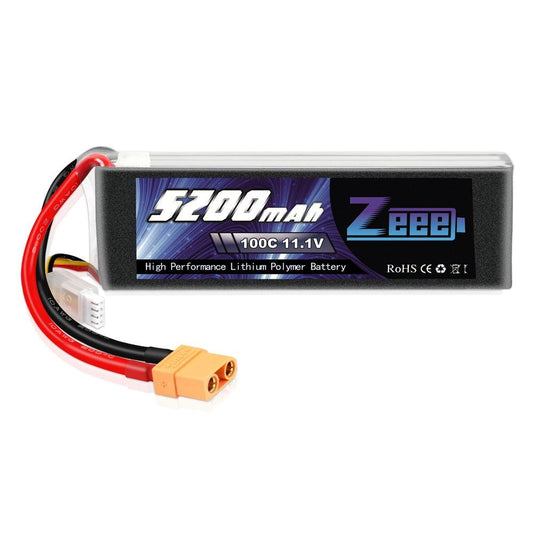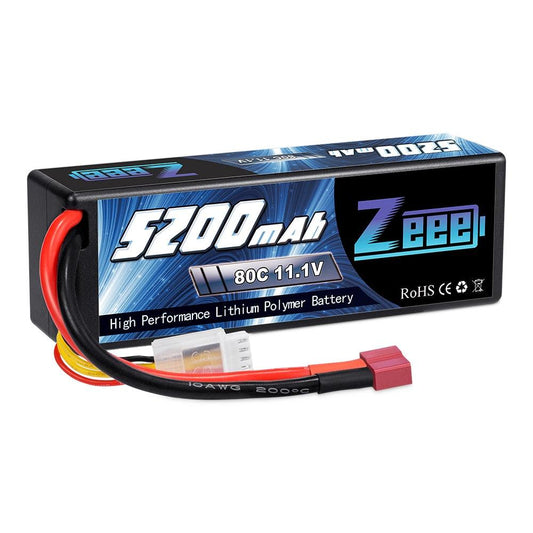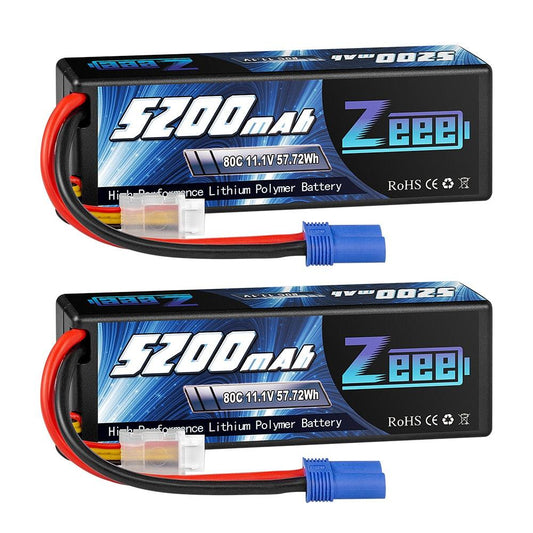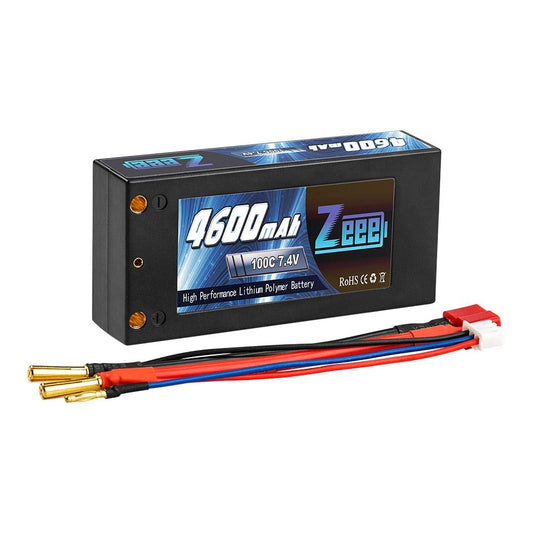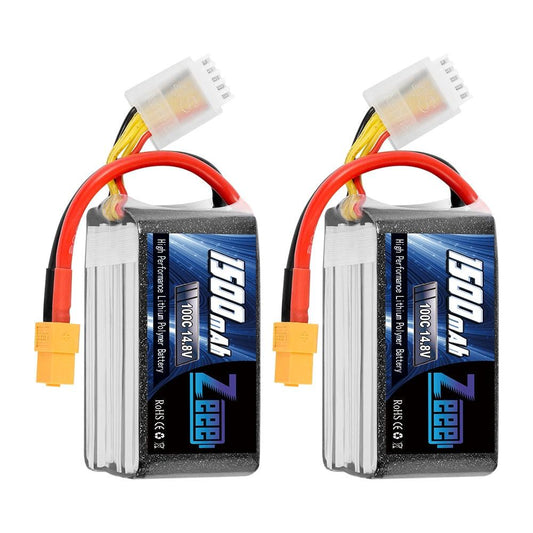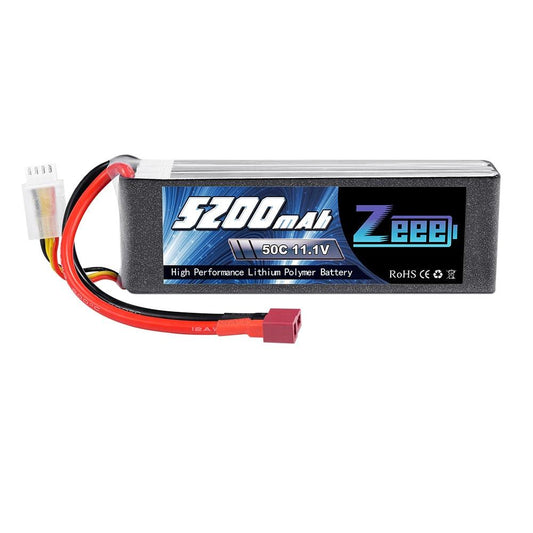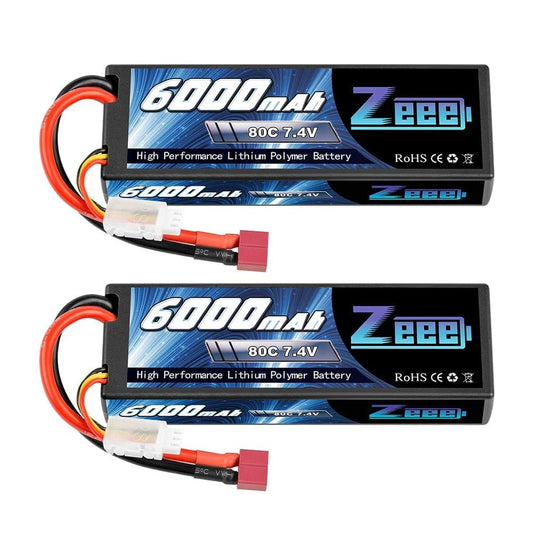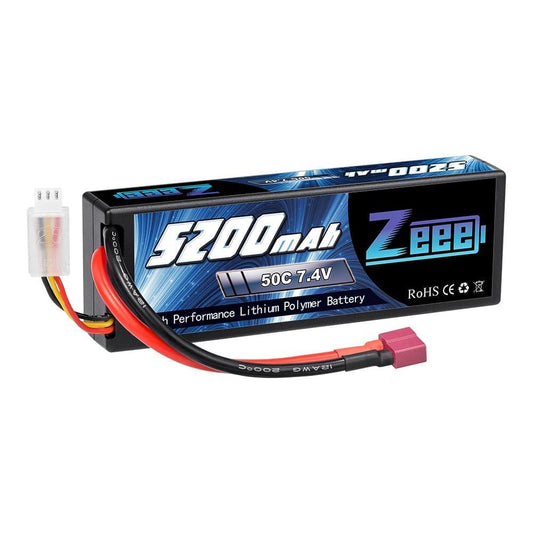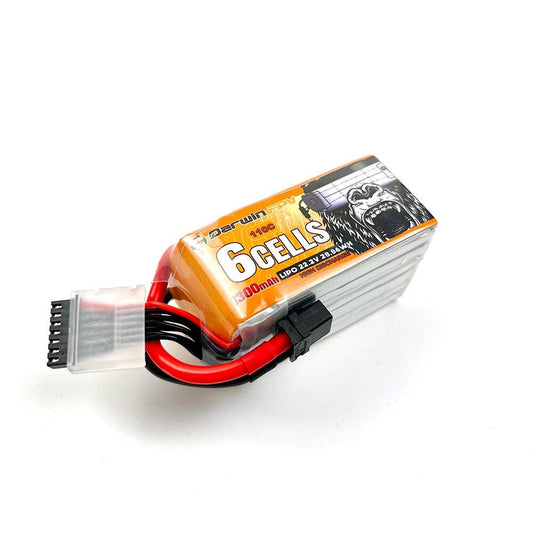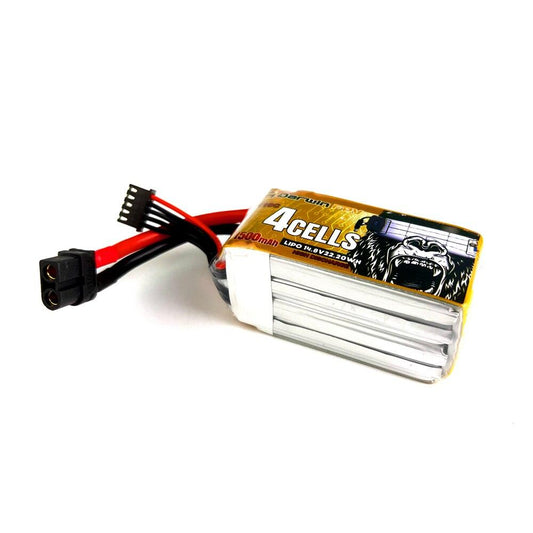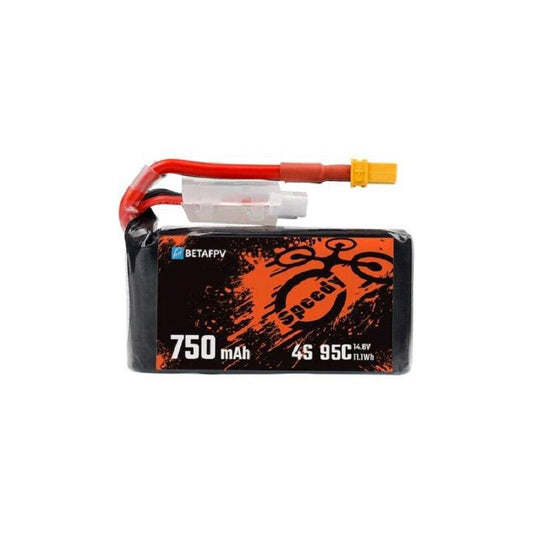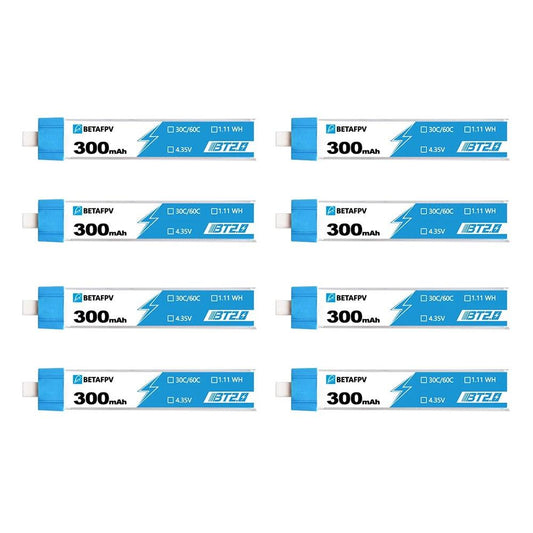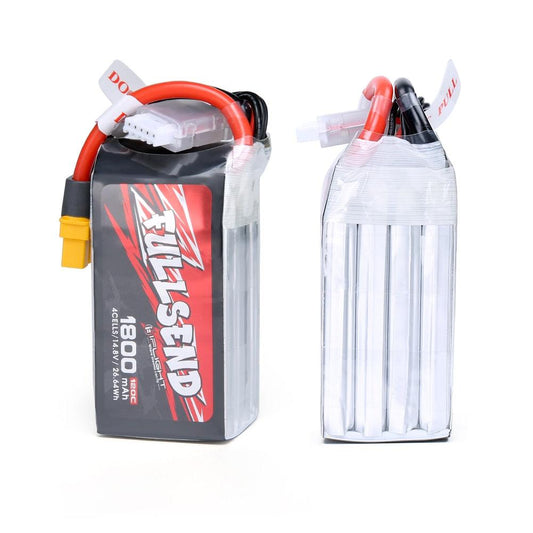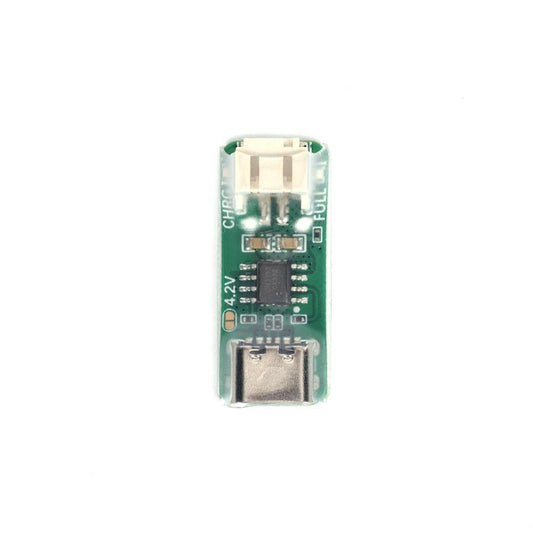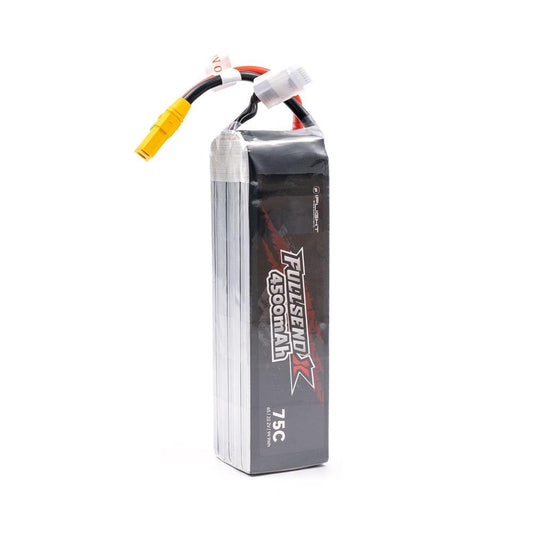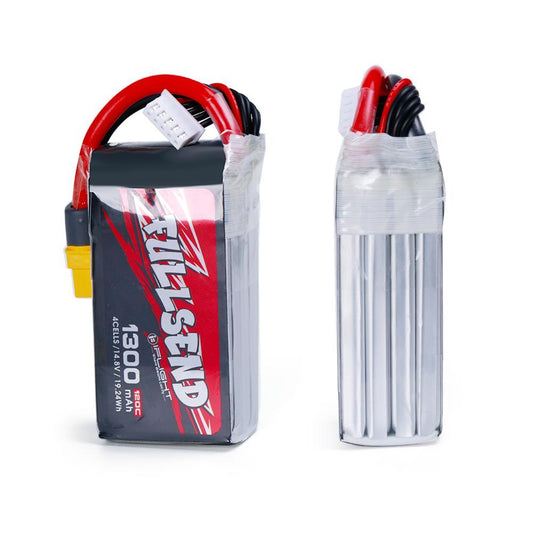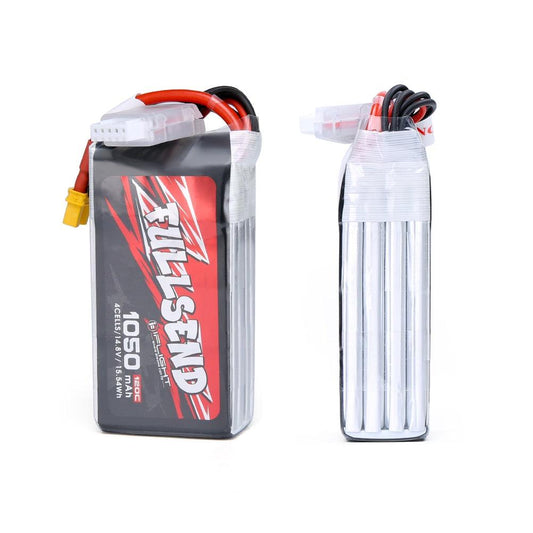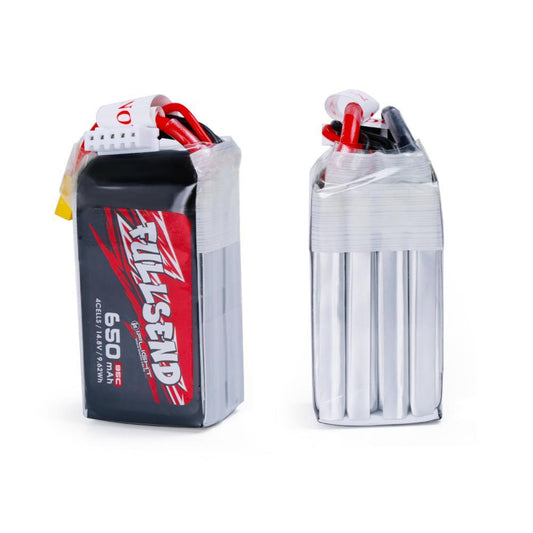Related Collections
-
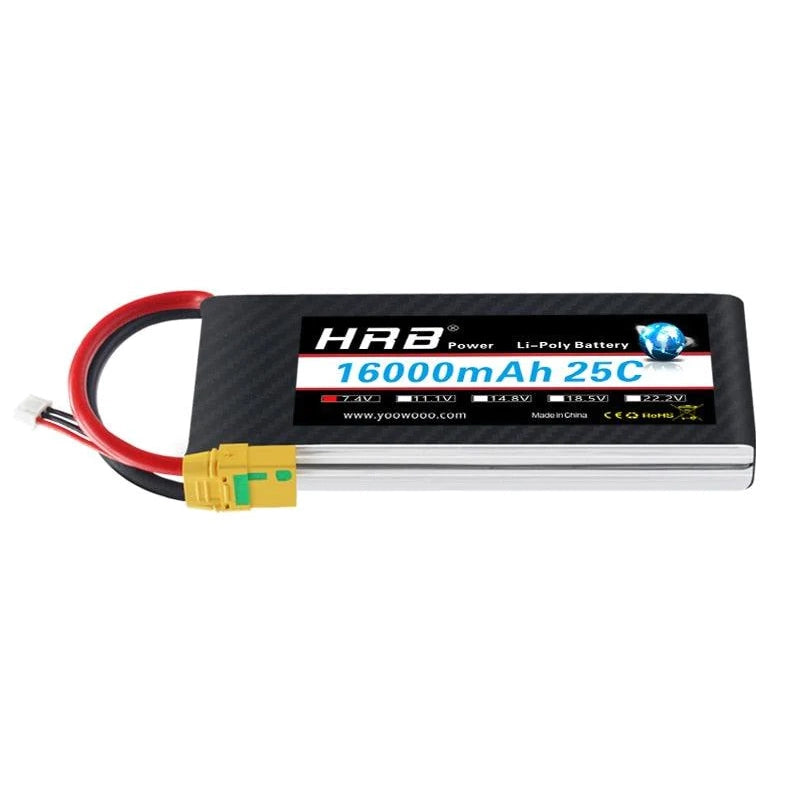
2S 7.4V Lipo Battery
This collection features 2S 7.4V LiPo batteries from HRB, CNHL, Zeee, Gens...
-
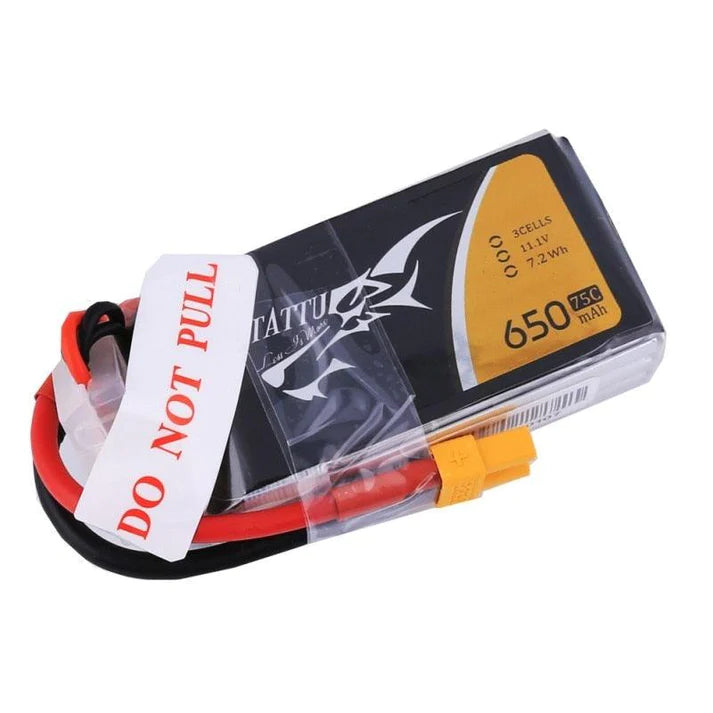
3S 11.1V Lipo Battery
Explore our 3S 11.1V Lipo Battery collection featuring top brands like HRB,...
-
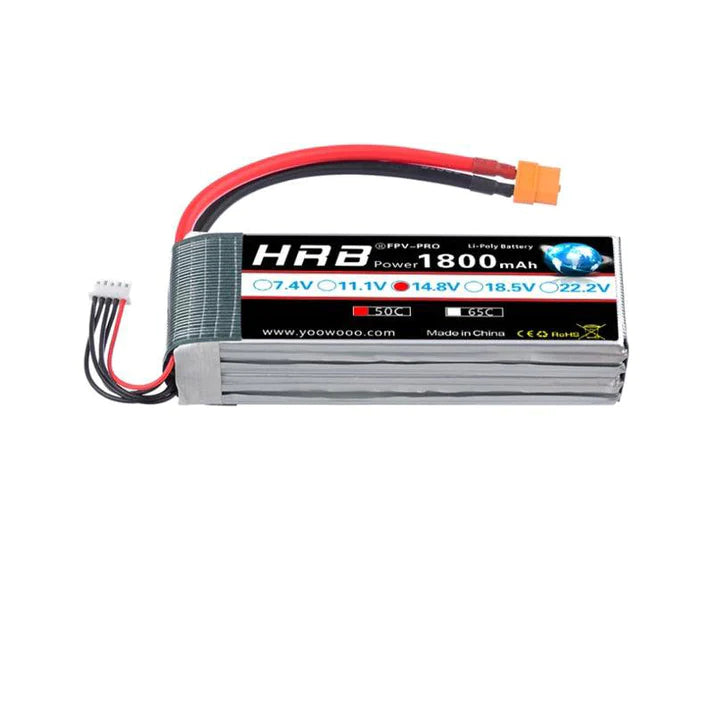
4S 14.8V Lipo Battery
Explore our wide selection of 4S 14.8V Lipo batteries, designed for FPV...
-
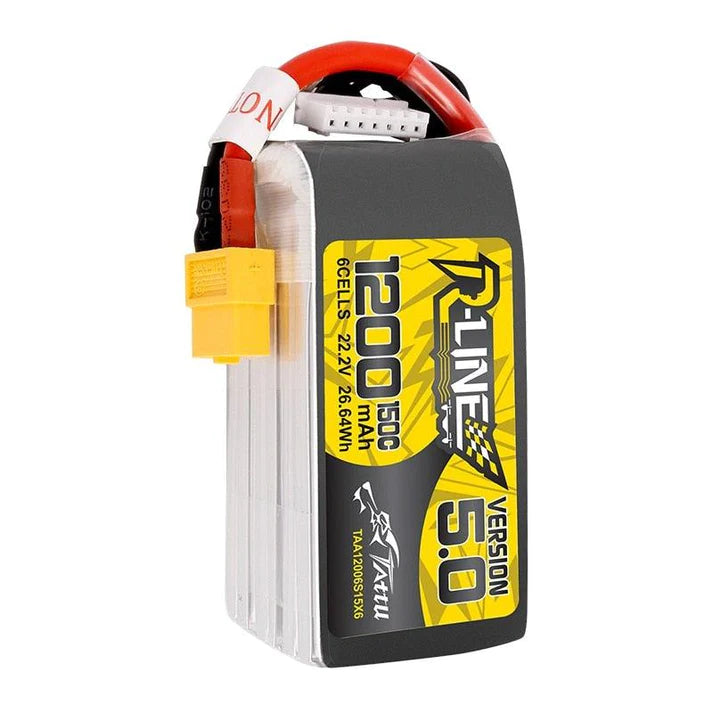
6S 22.2V Lipo Battery
Discover our wide selection of 6S 22.2V LiPo Batteries designed for FPV...
-
CNHL RC Lipo Battery for FPV Drone - 3S 4S 6S 11.1V 14.8V 22.2V 5200mAh 6200mAh 9500mAh Battery With EC5 QS8 6.5mm 8mm Bullet For RC Car Boat
Regular price From $71.29 USDRegular priceUnit price per -
3PCS CNHL14.8V 650mAh Lipo 4S Battery for FPV Drone - 70C MiniStar With XT30U Plug For Mini Quad RC FPV Airplane Quadcopter Drone Hobby Part
Regular price $50.83 USDRegular priceUnit price per -
4PCS CNHL 6S Lipo Battery for FPV Drone - 22.2V 1100mAh 1300mAh 1500mAh 100C With XT60 Plug For RC FPV Airplane Quadcopter Helicopter Drone
Regular price From $129.64 USDRegular priceUnit price per -
4PCS CNHL 4S 6S 14.8V 22.2V Lipo Battery for Drone - 1300mAh 1500mAh 100C With XT60 Plug For RC FPV Airplane Quadcopter Helicopter Drone Battery
Regular price From $94.33 USDRegular priceUnit price per -
ISDT N8 Charger - N16 N24 AA AAA Battery Charger DC Smart Battery Charger For Battery of Li-lon LiHv Ni-MH Ni-Cd LiFePO4 FPV Drone Battery Charger
Regular price From $84.78 USDRegular priceUnit price per -
SKYRC T200 Dual AC/DC Balance Charger - 12A 100W XT60 Plug For LiPo Li-ion LiFe NiCd NiMH PB LiHV Battery FPV Drone Battery Charger
Regular price $139.13 USDRegular priceUnit price per -
SkyRC eFuel 1200Watt / 50Amp 1200W/50A Power Supply FPV Drone Battery
Regular price $408.10 USDRegular priceUnit price per -
ISDT P10 Charger - 250WX2 10AX2 DC Dual Channel Smart Charger Discharger for Rc 1-6S Lipo Battery RC Models Racing FPV Drone Battery
Regular price $79.06 USDRegular priceUnit price per -
2PCS/4PCS Original Eachine 3.7V 360mAh Lipo Battery - Mini Mustang P-51D/Mini F22 RC Airplane 3.7V 360mAh Lipo Battery Spare Part FPV Drone Battery
Regular price From $19.55 USDRegular priceUnit price per -
2units Zeee 11.1V 1500mAh 100C 3S Lipo Battery with XT60 Plug Softcase RC Battery for RC Quad Drone RC Car Truck Airplane FPV Battery
Regular price $44.55 USDRegular priceUnit price per -
2units Zeee 11.1V 50C 3200mAh 3S Lipo Battery with Deans Connector Softcase Battery for RC Airplane Helicopter RC Car Truck Boat FPV Battery
Regular price $52.16 USDRegular priceUnit price per -
1/2units Zeee 5400mAh 80C 2S 7.4V Lipo Battery - Hardcase with Deans Plug RC Lipo Battery for RC Car Boat Truck Drone Helicopter FPV Battery
Regular price From $38.03 USDRegular priceUnit price per -
2Units Zeee Lipo Battery 2S 7.4V 60C 1500mAh with Deans Plug for RC Drone Boat RC Car Racing Hobby Specialized Lipo Battery Part FPV Battery
Regular price $27.10 USDRegular priceUnit price per -
Zeee Lipo Battery 6000mAh 7.4V 100C 2S Lipo RC Car Battery with Deans T Plug 2S RC Lipo Battery for Car Boat Truck Truggy Buggy FPV Drone Battery
Regular price $39.26 USDRegular priceUnit price per -
2units Zeee 7.4V 5200mAh 80C 2S Lipo Battery Hard Case with EC3 Plug for RC Car Helicopter Quadcopter UAV Drone FPV Battery High Quality
Regular price $59.77 USDRegular priceUnit price per -
Zeee 2S 6000mAh 7.4V 80C Lipo Battery for RC Parts Hardcase with Deans Plug for RC Car Vehicle Truck Tank Losi Slash Truggy FPV Drone Battery
Regular price From $27.69 USDRegular priceUnit price per -
Zeee 3S Lipo Battery - 11.1V 50C 5200mAh XT60 Plug for RC Car Helicopter Quadcopter Boat RC Airplane FPV Drone Battery
Regular price $44.45 USDRegular priceUnit price per -
Zeee 5200mAh 100C 11.1V 3S Lipo Battery with XT90 Connector Graphene LiPo Battey for RC Car Quadcopter Helicopter Boat Airplane FPV Drone Battery
Regular price $58.68 USDRegular priceUnit price per -
Zeee 11.1V 80C 5200mAh 3S Lipo Battery with Deans Plug Hardcase Battery for RC Car Boat Truck Helicopter Airplane Racing Models FPV Drone Battery
Regular price From $53.58 USDRegular priceUnit price per -
2units Zeee 2200mAh 3S Drone Battery - 11.1V 50C Lipo Battery with XT60 Plug For RC Quadcopter QAV250 Drone Boat Airplane FPV Battery
Regular price $58.68 USDRegular priceUnit price per -
2units Zeee 11.1V 80C 5200mAh 3S Lipo Battery with EC5 Connector Hardcase Battery for RC Car Boat Truck Helicopter Airplane FPV Drone Battery
Regular price $89.77 USDRegular priceUnit price per -
Zeee 2S Shorty Lipo 7.4V 4600mAh 100C Battery - RC Lipo Battery with 4mm Bullet Deans Ultra Plug Connector for Car Truck Boat FPV Drone Battery
Regular price From $41.29 USDRegular priceUnit price per -
2units Zeee 4S 14.8V 1500mAh Battery - 100C Lipo Battery with XT60 Connector Softcase Lipo Battery for RC Car Truck Airplane FPV Drone Battery
Regular price $41.38 USDRegular priceUnit price per -
Zeee 3S 5200mAh Battery - 50C 11.1V RC LiPo Battery with Deans Plug for RC Car Quadcopter Helicopter Boat RC Airplane Racing Hobby Battey FPV Drone Battery
Regular price From $45.64 USDRegular priceUnit price per -
1/2units Zeee 2S 6000mAh Lipo Battery 80C 7.4V with Deans Plug Hardcase Lipo Battery for RC Car Vehicle Truck Tank Slash Truggy FPV Drone Battery
Regular price From $38.03 USDRegular priceUnit price per -
1/2units Zeee 5200mAh 7.4V 50C Lipo Batteries - for RC Car 2S RC Lipo Battery with T Plug For RC Drone Car Truck Helicopter Boat FPV Battery
Regular price From $28.25 USDRegular priceUnit price per -
DarwinFPV 6S 1300mAh Battery - 110C Lipo Battery For Quadcopter Racing FPV Drone Battery
Regular price From $49.99 USDRegular priceUnit price per -
DarwinFPV 4S 1500mAh Battery - 14.8V 110C Lipo Racing Battery Quadcopter Racing FPV Drone Battery
Regular price From $47.28 USDRegular priceUnit price per -
BETAFPV 1000mAh 4S 75C Li-Po Battery 750mAh 95C 850mAh 75C Li-Po Charging FPV Battery For RC Quadcopter Drone
Regular price From $69.45 USDRegular priceUnit price per -
8PCS BETAFPV Drone Battery BT2.0 300mAh / 450mAh 1S For BETAFPV Ceuts FPV Kit Racing Drone 4.35V 30C FPV Lipo BT2.0 Connector FPV Battery
Regular price From $46.82 USDRegular priceUnit price per -
iFlight FULLSEND 4S 1800mAh Battery - 120C 14.8V Lipo Battery with XT60 Connector for FPV Drone Battery
Regular price $58.03 USDRegular priceUnit price per -
2pcs iFlight 1S JST PH2.0 Type-C Battery Charger support LiHV 3.3V/4.35V 1S battery for FPV Drone Battery
Regular price $11.88 USDRegular priceUnit price per -
iFlight FULLSEND X 4500mAh Battery - 6S 22.2V 75C Lipo FPV Battery with XT90H connector for FPV
Regular price $147.27 USDRegular priceUnit price per -
iFlight FULLSEND 4S 14.8V 1300mAh Battery - 120C Lipo FPV Battery with XT60H Connector for FPV drone part
Regular price $46.95 USDRegular priceUnit price per -
iFlight FULLSEND 4S 1050mAh FPV Battery - 120C 14.8V Lipo Battery with XT30 connector for FPV Drone
Regular price $46.95 USDRegular priceUnit price per -
iFlight FULLSEND 4S 650mAh FPV Battery - 14.8V 95C Lipo Battery with XT30 Connector for FPV drone part
Regular price $29.34 USDRegular priceUnit price per




